January 25, 2024 •
Ask the Experts – Registration on State and Municipal Levels

Urupong - Getty Images Pro
Q: I need to lobby on the municipal level, but I’m registered with the state. Am I covered? A: It will depend on the state, but you might not be covered. Some states, including Georgia, Illinois, Missouri, and New York, […]
Q: I need to lobby on the municipal level, but I’m registered with the state. Am I covered?
A: It will depend on the state, but you might not be covered. Some states, including Georgia, Illinois, Missouri, and New York, to name just a few, have lobbying laws covering both state and local governments. If you are registered in such a state, however, that does not necessarily end the analysis.
Even in states where state lobbying laws apply locally, you may still have local obligations. New York state law requires registration if you lobby locally and otherwise meet the registration requirements, but New York City has its own registration regime you will be required to follow, potentially requiring registration at both the state and local level. Illinois lobbying law covers local governments as well, but includes a carve out for lobbying in Chicago. Lobbying in Chicago requires registration with the city, but not with the state.
Whether you are or are not in a state where the lobbying laws apply locally, you will need to verify whether the city or county you are contacting has its own lobbying law. Even if it does not, be aware there may be other requirements, such as visitor logs, with which you will still need to comply.
Finally, be aware some local agencies, particularly those covering large metro areas, have their own lobbying laws as well, so registration with the city or county still may not cover your contacts with those agencies. For instance, Broward County Public Schools and the Los Angeles Metropolitan Transportation Authority (LAMTA) have adopted lobbying provisions separate from those of the counties in which they are located.
It is safest to always assume your government outreach, regardless of the level of your interaction, is covered by a lobbying law until you confirm otherwise.
Further information about the lobbying laws in hundreds of cities, counties, and local agencies can be found in the Lobbying Compliance Laws section of the State and Federal Communications website.
September 18, 2023 •
Connecticut Special Session Will Consider State Supreme Court Nomination
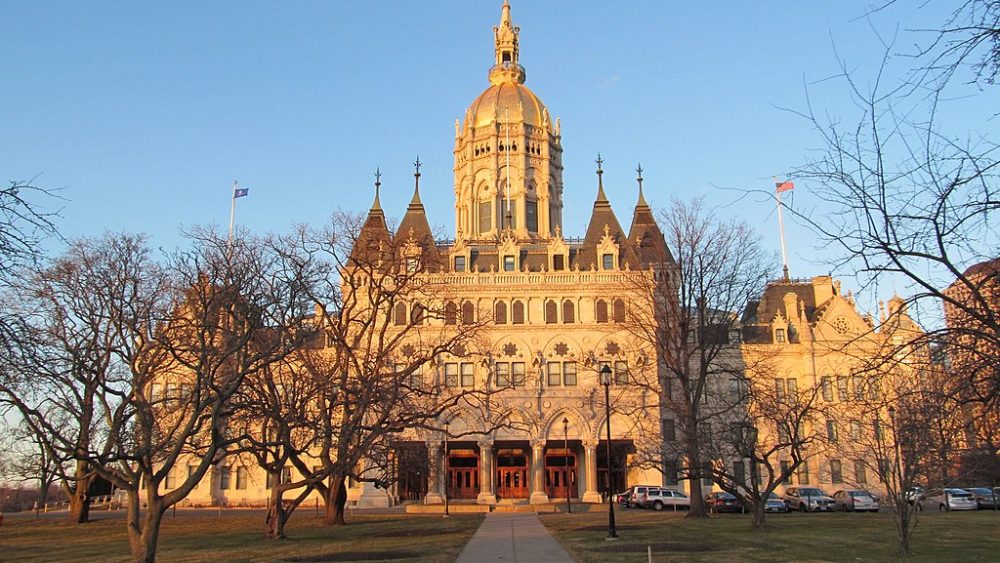
Connecticut State Capitol - John Phelan
Gov. Lamont called the Legislature into special session to consider the nomination of Nora Dannehy to the Supreme Court. The governor’s proclamation compels the special session to begin on September 19. A second special session proclamation by Lamont is anticipated […]
Gov. Lamont called the Legislature into special session to consider the nomination of Nora Dannehy to the Supreme Court.
The governor’s proclamation compels the special session to begin on September 19.
A second special session proclamation by Lamont is anticipated later this month to consider legislation changing the date for Connecticut’s presidential preference primary.
September 15, 2023 •
New York Independent Ethics Commission Ruled Unconstitutional
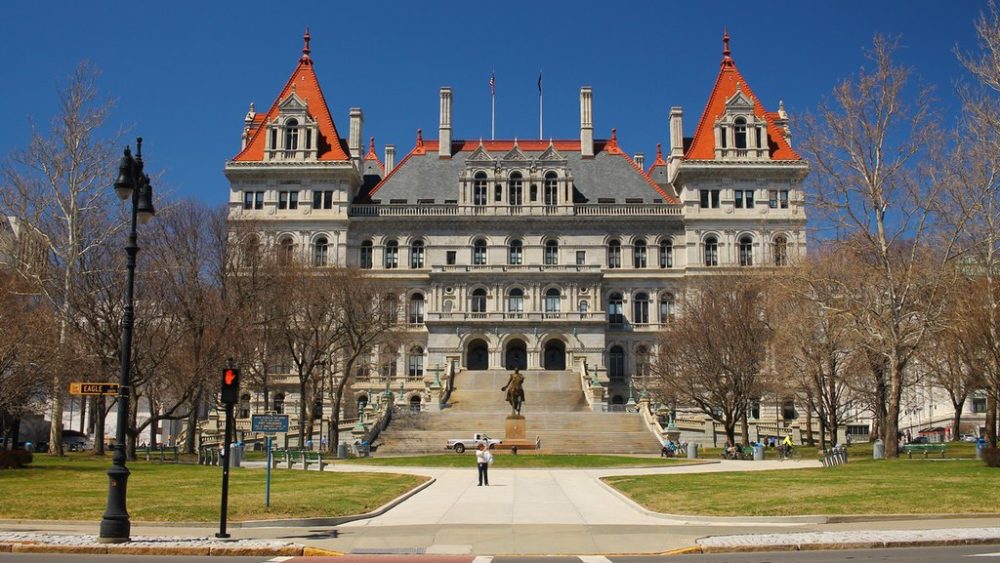
NY State Capitol - by formulanone
A state court has ruled the New York Commission on Ethics and Lobbying in Government violates the state’s constitution because it was formed without a constitutional amendment and it divests the governor of her authority. The commission will need to […]
A state court has ruled the New York Commission on Ethics and Lobbying in Government violates the state’s constitution because it was formed without a constitutional amendment and it divests the governor of her authority.
The commission will need to suspend its work pending the outcome of any appeal.
While this matter works its way through the courts, the commission will continue to promote compliance with the state’s ethics and lobbying laws.
September 1, 2023 •
Maine Ethics Commission Updates Guides with 2023 Changes

Maine Capitol Building
The Commission on Governmental Ethics and Elections Practices published legislative summaries and updated guides to reflect legislation passed in 2023. Effective October 25, the window to register as a lobbyist is decreased from 15 to 10 calendar days following triggering […]
The Commission on Governmental Ethics and Elections Practices published legislative summaries and updated guides to reflect legislation passed in 2023.
Effective October 25, the window to register as a lobbyist is decreased from 15 to 10 calendar days following triggering activities.
Penalties for lobbyist reporting violations will increase by $50 for each successive violation during a lobbying year.
Effective June 22, the ban on direct corporate contributions was reversed and now limited to $1,950 in any election for a gubernatorial candidate; $475 for a legislative candidate; $575 for a candidate for municipal office; and $975 in any election for any other candidate.
July 27, 2023 •
Special Congressional Election Scheduled in Rhode Island

Rhode Island State House
Twelve candidates are running in the September 5, 2023, Democratic special primary for Rhode Island’s 1st Congressional District. The special election will take place November 7 and will be the first congressional special election in Rhode Island since the 1967. The […]
Twelve candidates are running in the September 5, 2023, Democratic special primary for Rhode Island’s 1st Congressional District.
The special election will take place November 7 and will be the first congressional special election in Rhode Island since the 1967.
The seat became vacant following incumbent Democratic Representative David Cicilline’s resignation to become the CEO of the Rhode Island Foundation.
July 27, 2023 •
Maine Veto Session Ends
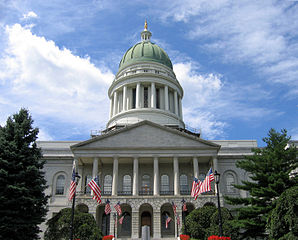
The veto session ended on July 25 with Gov. Janet Mills giving her comments on a sustained veto of a bill seeking to prohibit campaign spending by entities influenced by foreign governments. According to Mills, the bill poorly defined what is foreign […]
The veto session ended on July 25 with Gov. Janet Mills giving her comments on a sustained veto of a bill seeking to prohibit campaign spending by entities influenced by foreign governments.
According to Mills, the bill poorly defined what is foreign government influence and would have the unintended consequence of effectively silencing legitimate voices, including Maine based businesses, in debates that would impact their interests.
Mills hopes to find a way to prevent foreign influence in elections by enacting a more narrowly tailored and easily understood statute. The issue has another chance to pass as a ballot measure in November.
July 27, 2023 •
New York Assemblyman’s Resignation Triggers Special Election

NY State Capitol - by formulanone
New York Gov. Kathy Hochul scheduled a special election following the resignation of Assemblyman Dan Rosenthal. The election to fill the vacancy in Assembly District 27 will be held on September 12. Rosenthal, who was first elected at 26, is […]
New York Gov. Kathy Hochul scheduled a special election following the resignation of Assemblyman Dan Rosenthal.
The election to fill the vacancy in Assembly District 27 will be held on September 12.
Rosenthal, who was first elected at 26, is backing Sam Berger who is 25 years old and the son of a Democratic district leader.
July 25, 2023 •
Special Election will Break Tie in Pennsylvania

Pennsylvania Capitol Building
The landscape of the Pennsylvania House of Representatives shifted with the recent resignation of Democratic member Sarah Innamorato. The resignation leaves the Legislature tied, with the partisan breakdown now sitting at 101-101. Democratic Speaker Joanna McClinton scheduled a special election for […]
The landscape of the Pennsylvania House of Representatives shifted with the recent resignation of Democratic member Sarah Innamorato.
The resignation leaves the Legislature tied, with the partisan breakdown now sitting at 101-101.
Democratic Speaker Joanna McClinton scheduled a special election for the Allegheny County District 21 seat to take place September 19.
July 10, 2023 •
Maine Legislature Adjourns Sine Die

Maine Capitol Building
Lawmakers in the Democratic-controlled House and Senate completed their final session for the year and adjourned sine die on March 30. Bills related to campaign finance and lobbying reports were passed and signed by the governor. Senate Bill 255 requires […]
Lawmakers in the Democratic-controlled House and Senate completed their final session for the year and adjourned sine die on March 30.
Bills related to campaign finance and lobbying reports were passed and signed by the governor.
Senate Bill 255 requires campaign finance reports to be filed 42 days before any election instead of just general elections.
Senate Bill 1630 increases penalties for repeated late filings of lobbyist reports by $50 for each successive violation.
Both bills are effective 90 days after the adjournment.
July 10, 2023 •
Rhode Island Raises Campaign Contribution Limits

Rhode Island State House
Lawmakers passed a campaign finance bill to double contribution limits and define terms regarding in-kind donations. Senate Bill 846 raises the individual contribution limit from $1,000 to $2,000 per year and doubles permitted anonymous donations from $100 to $200. In […]
Lawmakers passed a campaign finance bill to double contribution limits and define terms regarding in-kind donations.
Senate Bill 846 raises the individual contribution limit from $1,000 to $2,000 per year and doubles permitted anonymous donations from $100 to $200.
In an effort to police in-kind contributions, fair market value is defined as the usual and normal charge for goods and services.
The bill became effective without the governor’s signature on June 27.
July 5, 2023 •
Longstanding New Hampshire House member resigns
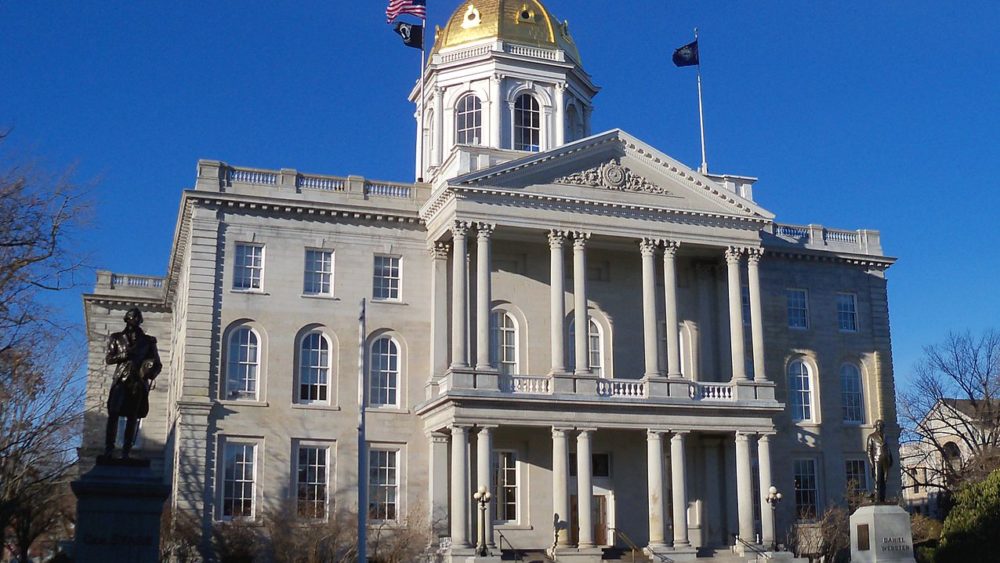
New Hampshire State House - AlexiusHoratius
State Rep. David Cote (Hillsborough District 3) resigned on Wednesday, July 5. Cote was first elected to the state’s House of Representatives in the 1980s and was never sworn in after winning the 2022 election due to health concerns. In […]
State Rep. David Cote (Hillsborough District 3) resigned on Wednesday, July 5.
Cote was first elected to the state’s House of Representatives in the 1980s and was never sworn in after winning the 2022 election due to health concerns.
In 2021, he was among the plaintiffs in a federal lawsuit arguing that requiring ill lawmakers to attend in person during the coronavirus pandemic violated the Americans with Disabilities Act.
A federal judge denied the plaintiffs request for a preliminary injunction, and the case remains unsettled. With his resignation, the Legislature now has three vacant seats.
June 28, 2023 •
New Jersey Governor Phil Murphy Appoints ELEC Commissioners
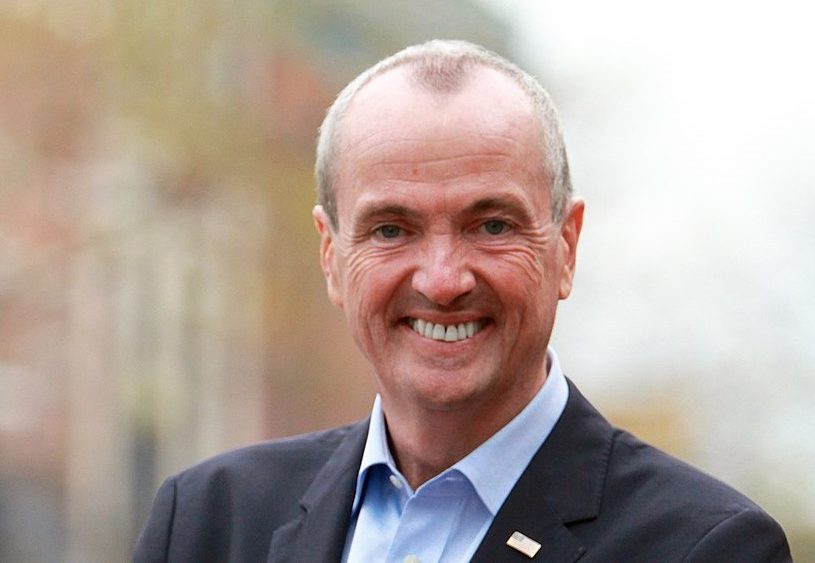
New Jersey Gov. Phil Murphy
Gov. Phil Murphy appointed four new commissioners to the state’s campaign finance watchdog agency. The Election Law Enforcement Commission (ELEC) oversees campaign spending, lobbying, and pay-to-play in the state. In addition to providing Murphey with the power to appoint these commissioners, Senate […]
Gov. Phil Murphy appointed four new commissioners to the state’s campaign finance watchdog agency.
The Election Law Enforcement Commission (ELEC) oversees campaign spending, lobbying, and pay-to-play in the state.
In addition to providing Murphey with the power to appoint these commissioners, Senate Bill 2866 made a number of substantial changes to ethics laws.
These changes included increasing spending and contribution limits; overhauling pay-to-play laws; and shortening how long the state’s election watchdog commission can investigate campaign finance violations.
June 13, 2023 •
New York Session Adjourns but Assembly Return Expected

NY State Capitol - by formulanone
The New York Legislature adjourned on June 10 after the Clean Slate Act passed both houses. The legislation, which still must be signed into law by Gov. Kathy Hochul, wipes a New Yorker’s conviction record clean three years after sentencing […]
The New York Legislature adjourned on June 10 after the Clean Slate Act passed both houses.
The legislation, which still must be signed into law by Gov. Kathy Hochul, wipes a New Yorker’s conviction record clean three years after sentencing for misdemeanors and eight years for certain felonies.
The Senate is not expected to return to session but the Assembly will likely return in the near future to complete unfinished work.
June 13, 2023 •
Ask The Experts – Texas Sponsorship Laws
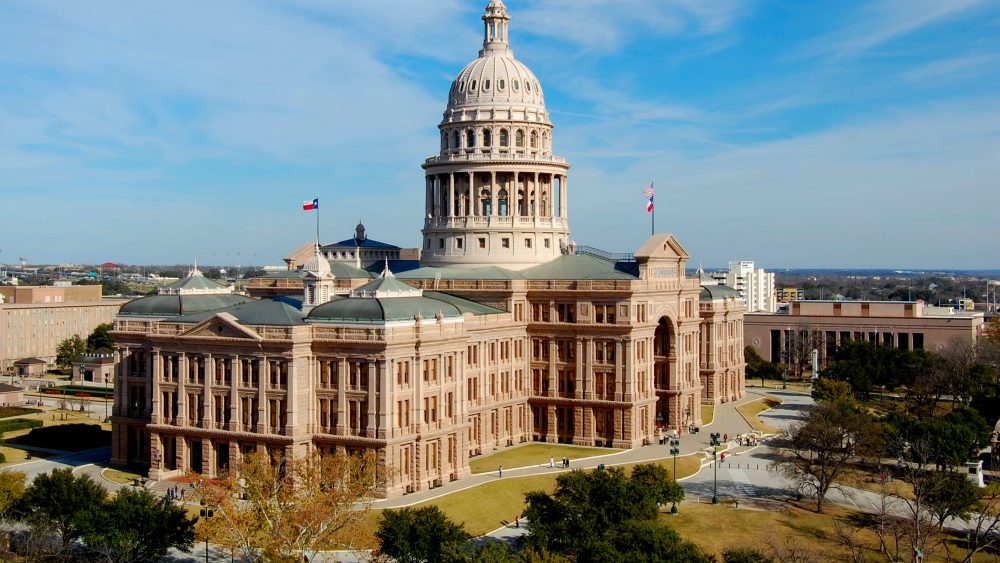
Q: My organization wants to sponsor a reception in Texas. State legislators, staff, and family members are likely to be in attendance. As a registered lobbyist, what are my limits and reporting obligations? As a registered lobbyist, there are several […]
Q: My organization wants to sponsor a reception in Texas. State legislators, staff, and family members are likely to be in attendance. As a registered lobbyist, what are my limits and reporting obligations?
As a registered lobbyist, there are several items to keep in mind when sponsoring an event. First, a lobbyist can provide an unlimited amount of food and beverage to an official, employee, immediate family member, or guest when the lobbyist attends the event. If not present at the event, food and beverage expenditures are limited to $100 or less.
Next, when engaging with officials at the event, sponsorship is considered a lobbying expenditure and will need to be disclosed on the appropriate lobbying report. These reports break expenditures down by type (food and beverage, entertainment, transportation, etc.) and by recipient. This may seem straightforward, but if your sponsorship goes to the organizing entity, how do you know how your dollars are being used?
The state provides some guidance here. When reporting expenditures for a reception or banquet type event, the Food and Beverage category includes all items needed to hold the event such as room rental, table settings, and printing costs. Other categories may need to be included depending on the specific event.
Additionally, you will need to know who among the attendees are in a reportable category of persons benefitted. Generally, this is state senators/representatives, state officers, state employees, immediate family members, and guests. If a combination of these groups are in attendance, or a combination of covered and non-covered individuals, the expenditure should be divided appropriately based on the numbers in each category. If all members of the legislature are invited, the entire expenditure is reported under that category. As long as all members are invited, it does not matter how many actually attend.
Finally, keep in mind the detailed reporting threshold. If the per person costs exceed the threshold, currently $132.60, the individuals must be identified and other details disclosed.
For more information, please see the “Reports Required” and “Gift Law” sections of the Lobbying Compliance Laws online publication for Texas. If you have any questions, please feel free to contact us.
State and Federal Communications, Inc. provides research and consulting services for government relations professionals on lobbying laws, procurement lobbying laws, political contribution laws in the United States and Canada. Learn more by visiting stateandfed.com.

